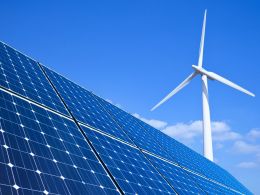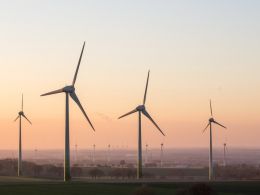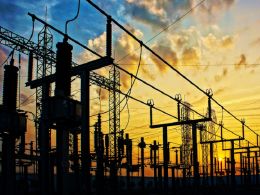
Germany looks to blockchain to help decentralize their energy economy
The country seeks to innovate with help from a variety of Blockchain companies. The Deutsche Energie-Agentur, also known as DENA — the main governmental group responsible for energy innovation in Germany — looks to put its energy ecosystem on a decentralized database.DENA “has selected Energy Web to design and construct a digital registry for distributed energy resources (DERs) across the country in partnership with more than 20 industry players,” an Oct. 13 blog post from Energy Web detailed, adding:“The project will enable energy assets in Germany, such as thermostats, solar PV systems,....
Related News
Germany’s blockchain solution for distributed energy resources puts interoperability to the test. Distributed energy resources, or DERs, have the potential to disrupt traditional electricity markets. Therefore, it shouldn’t come as a surprise that innovative countries are looking toward emerging technologies that will allow DERs to transform entire energy economies. Germany in particular is interested in using DERs to drive its digital energy economy while also complying with the European Green Deal. As such, the Deutsche Energie-Agentur, also known as DENA — the main governmental group....
Following a weekend of solution seeking, collaboration and competition, the highlight of the Hackenergy 2016 event was a blockchain-fueled peer-to-peer (P2P) energy trading system called EcoCoin, which grabbed top honors. Brendon Geils of the U.S., Simon Appel of Germany and Hodge Hodgson of Germany) built the blockchain-fueled P2P energy trading system on the open source Hyperledger blockchain managed by the Linux Foundation to win the hacking competition. International Turnout. Hackers from Germany, Spain, the U.S., the U.K. and the Netherlands attended the event, held in Groningen, an....
A new survey has found that the energy sector in Germany may soon be adopting the blockchain technology with many energy companies outlining a road map for the implementation of the technology in the future, according to the German news site, Contra Magazin. The survey, undertaken by Deutsche Energie-Agentur (German Energy Agency) and ESMT Berlin, looked at the responses from 70 executives serving firms in the energy sector. The results found that 39 percent indicated that their companies have plans in the future to implement the technology. While another 13 percent stated that they....
The German state-funded energy project uses DLT to enable transparent market transactions. A blockchain-based energy trading platform backed by German tech giant Siemens is being publicly demonstrated in a Bavarian municipality today.The so-called “Pebbles” project — short for “peer-to-peer energy trading based on blockchains” — is holding a virtual demo of its blockchain-based marketplace platform for optimized electricity trading. The demo was officially announced by the project on Oct. 22.The public demonstration of Pebbles’ energy platform in the town of Wildpoldsried in Bavarian marks....
Customers of one of Germany’s largest energy providers Enercity can now pay their electricity bills with bitcoin, the company announced today. Hanover Residents Can Pay Utility Bills With Bitcoin. Enercity provides both the public and industry with electricity, gas, district heating, and drinking water. One of the ten largest energy companies in Germany,....





